
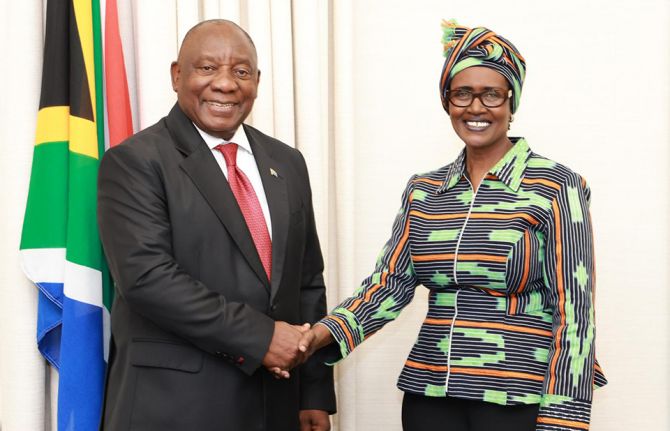
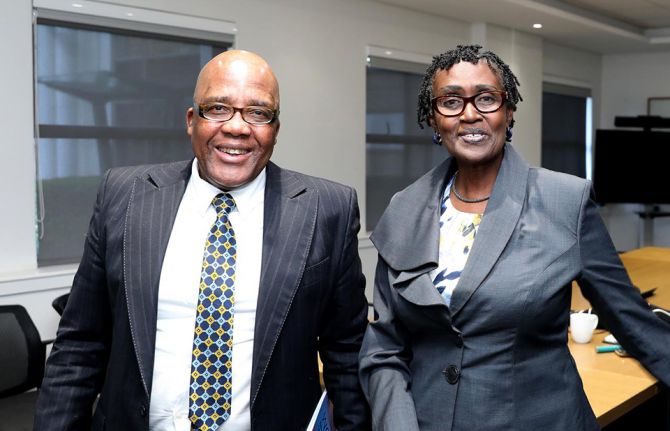
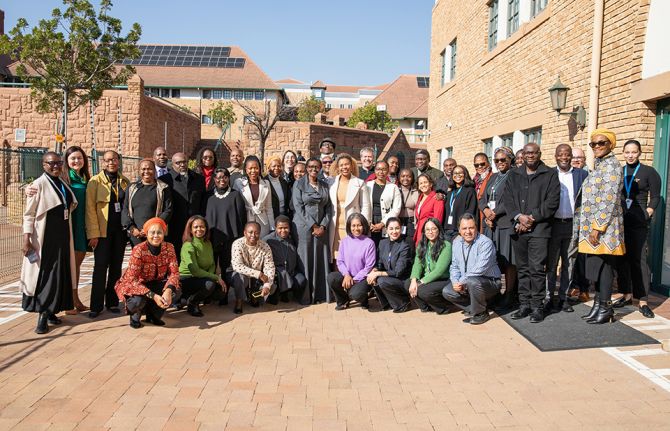
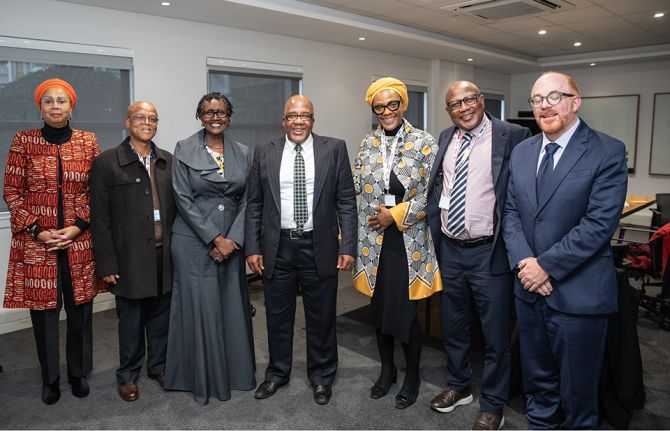
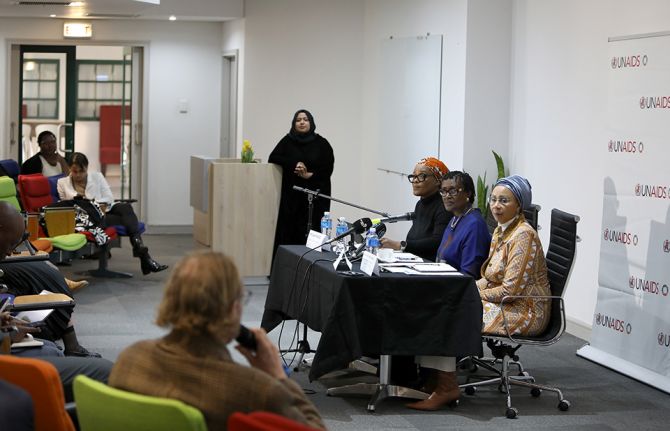
Press Release
UNAIDS Executive Director encouraged by South Africa’s continued leadership in responding to HIV
20 June 2025 20 June 2025GENEVA/JOHANNESBURG, 20 June 2025—The Executive Director of UNAIDS, Winnie Byanyima, has concluded a four-day mission to South Africa. During the visit Ms Byanyima recognized South Africa’s continued leadership in the national HIV response. She also gained a deeper understanding about the impact of the global funding cuts on HIV services, and reaffirmed UNAIDS support to the recently launched Close the Gap campaign—a push to ensure an additional 1.1 million people in the country have access to life-saving treatment.
The visit also served as an opportunity to explore how UNAIDS can support South Africa’s G20 Presidency and the country’s role as co-host of the Eight Replenishment of the Global Fund to Fight AIDS, TB and Malaria—a campaign to raise funds for the three diseases.
“I came here to listen, to understand and to support South Africa, the country with the highest burden of HIV,” said Ms Byanyima. “Around 7.8 million people in the country are living with HIV, the highest number in the world. UNAIDS is supporting the government to ensure that HIV prevention efforts are scaled up, that all people in need have access to treatment, and that South Africa can end AIDS as a public health threat by 2030.”
During her mission, Ms Byanyima’s engagements included a site visit to the Itireleng Community Health Centre in Soweto where she met with health workers and community-led monitors, monitoring HIV service delivery. She also met with civil society organizations and held high-level engagements with President Cyril Ramaphosa and Health Minister, Dr Aaron Motsoaledi. Ms Byanyima commended South Africa for its continued political and financial leadership in its efforts to fill funding gaps to end AIDS.
While she noted South Africa’s significant financial contribution to the country’s HIV response, 76% of which is funded from domestic sources, Ms Byanyima saw firsthand how the loss of US funding (which was at 17%) is affecting HIV service delivery at the community level. She heard how more than 8,000 health workers and 1,600 data capturers who supported tracing and tracking patients in communities, have lost their jobs. Medicine supply chains, laboratories and information systems have been impacted and twelve specialized key population clinics in South Africa funded by the US have also closed.
Ms Byanyima praised both the government and civil society for their leadership and resilience amidst the funding cuts. “In Soweto I saw what the disruptions mean for the country. It is being felt by people most affected by HIV, including adolescent girls and young women aged 15-24 years who account for an estimated third of all new HIV infections–1,057 each week. We are now seeing a bigger gap in HIV prevention services,” said Ms Byanyima.
“But I am very pleased to hear about some of the efforts that are being made by the government to fill the gaps. I learned about the medical records of key population clients being transferred to nearby public healthcare centres where they can get treatment when their usual US funded clinics shut down, and the establishment of a clinic in Hillbrow to provide tailored services for sex workers. The Minister of Health shared ongoing government discussions with the Welcome Trust and the Gates Foundation to address the critical funding cuts in AIDS research that could halt scientific contribution to finding a vaccine. I am seeing real efforts by the government, including the investment of new resources into the national HIV response. This is very encouraging.”
Ms Byanyima’s visit coincided with the G20 Health Working Group meeting in Johannesburg. She reiterated her support to South Africa’s leadership of the G20, to advance international action to enable local production of medicines on every continent and to tackle the resource constraints on health faced by low- and middle-income countries through debt reduction and tax cooperation. The UNAIDS-convened international expert group, The Global Council on Inequality, AIDS, and Pandemics, is helping inform the deliberations of the G20.
South Africa’s leadership of the G20 this year is critical for global public health, as it works to tackle the inequalities that are holding back progress. UNAIDS is working in partnership with South Africa to support the G20 to enable access to medicines, expand fiscal space, and on addressing the social determinants of health.
UNAIDS
The Joint United Nations Programme on HIV/AIDS (UNAIDS) leads and inspires the world to achieve its shared vision of zero new HIV infections, zero discrimination and zero AIDS-related deaths. UNAIDS unites the efforts of 11 UN organizations—UNHCR, UNICEF, WFP, UNDP, UNFPA, UNODC, UN Women, ILO, UNESCO, WHO and the World Bank—and works closely with global and national partners towards ending the AIDS epidemic by 2030 as part of the Sustainable Development Goals. Learn more at unaids.org and connect with us on Facebook, Twitter, Instagram and YouTube.
Contact
UNAIDS South AfricaZeenat Abdool
tel. +27 827 788 080
abdoolz@unaids.org
UNAIDS Global Communications
Robert Shivambu
tel. +27 (0) 83 608 1498
shivambuh@unaids.org
